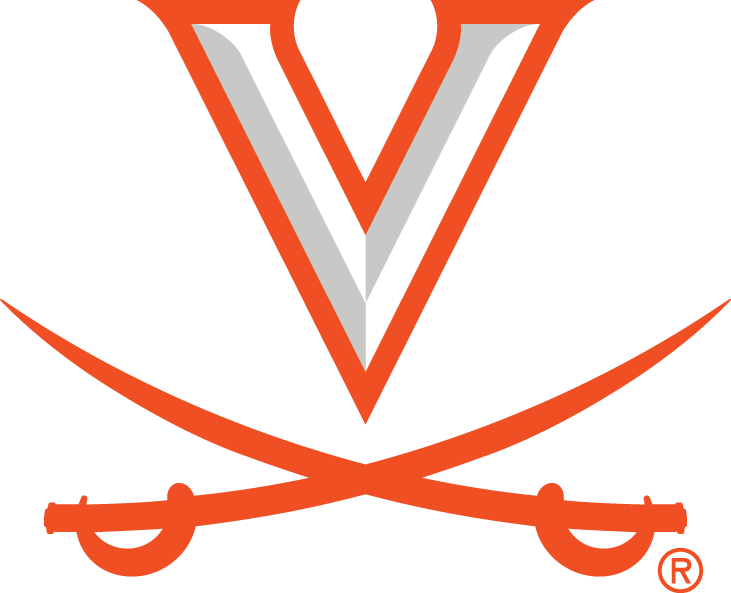By Jeff White (jwhite@virginia.edu)
VirginiaSports.com
CHARLOTTESVILLE, Va. — Growing up as an avid hoops fan in the Washington, D.C., area, Matt Henry followed the Big East closely and pulled for the powerhouse John Thompson oversaw at Georgetown University. The ACC program down the road at the University of Virginia? Not so much.
“My clearest recollection of Virginia basketball, interestingly enough, is not Virginia men’s basketball, but Virginia women’s basketball,” Henry recalled.
When he was 10 or 11 years old, Henry said, he took a day trip to Charlottesville with this family. “We were just driving around Grounds, and we parked at University Hall and walked in, and the women’s team was practicing in there. It was that incredible era of UVA women’s basketball where they were one of the best programs in the country, and I remember standing up on the top of U-Hall with my dad and watching them practice for 15 minutes.”
Some 35 years later, U-Hall is only a memory, and John Paul Jones Arena is the home of UVA’s basketball programs. And that’s where Henry can be found these days.
He’s an assistant on head men’s coach Ryan Odom’s first staff at Virginia. They’ve been colleagues since the summer of 2018, when Odom hired Henry as an assistant coach at the University of Maryland Baltimore County.
“Matt Henry is somebody that has been a steady hand for me personally and somebody that is a great basketball coach, a great communicator, a hard worker,” Odom said. “He’s excellent in-game, in terms of offering timely suggestions, tremendous in pregame preparation in getting our team ready for the opponent, excellent in player development. And so he’s just a well-rounded coach.”
🗓️ACC matchup dates have been finalized! Check out our schedule at the link below:https://t.co/uKojsIs8oL pic.twitter.com/Bq8n7jK2qN
— Virginia Men's Basketball (@UVAMensHoops) September 24, 2025
When Henry went to work for Odom, UMBC was about five months removed from its historic upset of UVA in the NCAA tournament’s first round.
“Do not give me any credit for that, or, in this town, don’t give me any blame for that,” Henry said, laughing.
In 2021, Henry went with Odom to Utah State. Two years later, most of Odom’s staff, Henry included, followed him back across the country to Virginia Commonwealth University. After two successful seasons in Richmond, Odom was hired at UVA, and Henry found himself at a school to which he hadn’t considered applying as a senior at Sidwell Friends in D.C.
“I was looking for a smaller school,” Henry said, “and, full disclosure, I was a bad student with good test scores at Sidwell Friends. I was more of a theoretical student than in practice.”
He enrolled at Trinity University in San Antonio, Texas. As a sophomore, Henry joined the Trinity men’s program as a student assistant, starting his slow, steady ascent in the profession he’d long wanted to pursue.
“I knew I wanted to be a coach from the time I was in middle school,” said Henry, a Maine native who moved to Alexandria with his family when he was 4. “That’s all I ever really wanted to do, for better or for worse, and I haven’t been able to shake the bug.”
Before Henry had his driver’s license, his father would take him to high school games in the D.C. area. “Once I was able to drive and I had access to a car, I would drive all over to see any game,” Henry said, “and I would do that in the summers when I was in college.”
He smiled. “In some ways I haven’t progressed as a man or a person very much. I’m still going to basketball all summer long, but I just enjoy going to games, and I have since I was 12, 13.”
After graduating from Trinity in 2001, he spent three years as a men’s assistant at his alma mater. “As a Division III assistant coach, it’s part-time pay and full-time work,” Henry said. “At least the way I wanted to do it was full-time work.”
To supplement his meager income, Henry took a job at a golf course in San Antonio. “At the time it was one of the best courses in the state of Texas,” he said. “So everybody else on the cart staff was working there because they wanted the free golf, and I was working there because the head pro was buddies with [Trinity’s] AD and gave me a schedule where I could work the mornings. I’d get up at 5:30 in the morning, go set up the range, set up the carts, all that. And then around 1 o’clock or so, I’d go do the basketball stuff.”
Henry returned to the D.C. area in 2004 to become director of basketball operations at Georgetown, where he spent six years on head coach John Thompson III’s staff.
“So I went from a part-time Division III assistant to a couple years later being on the bench for a Final Four team and winning Big East championships and stuff like that,” Henry said.
